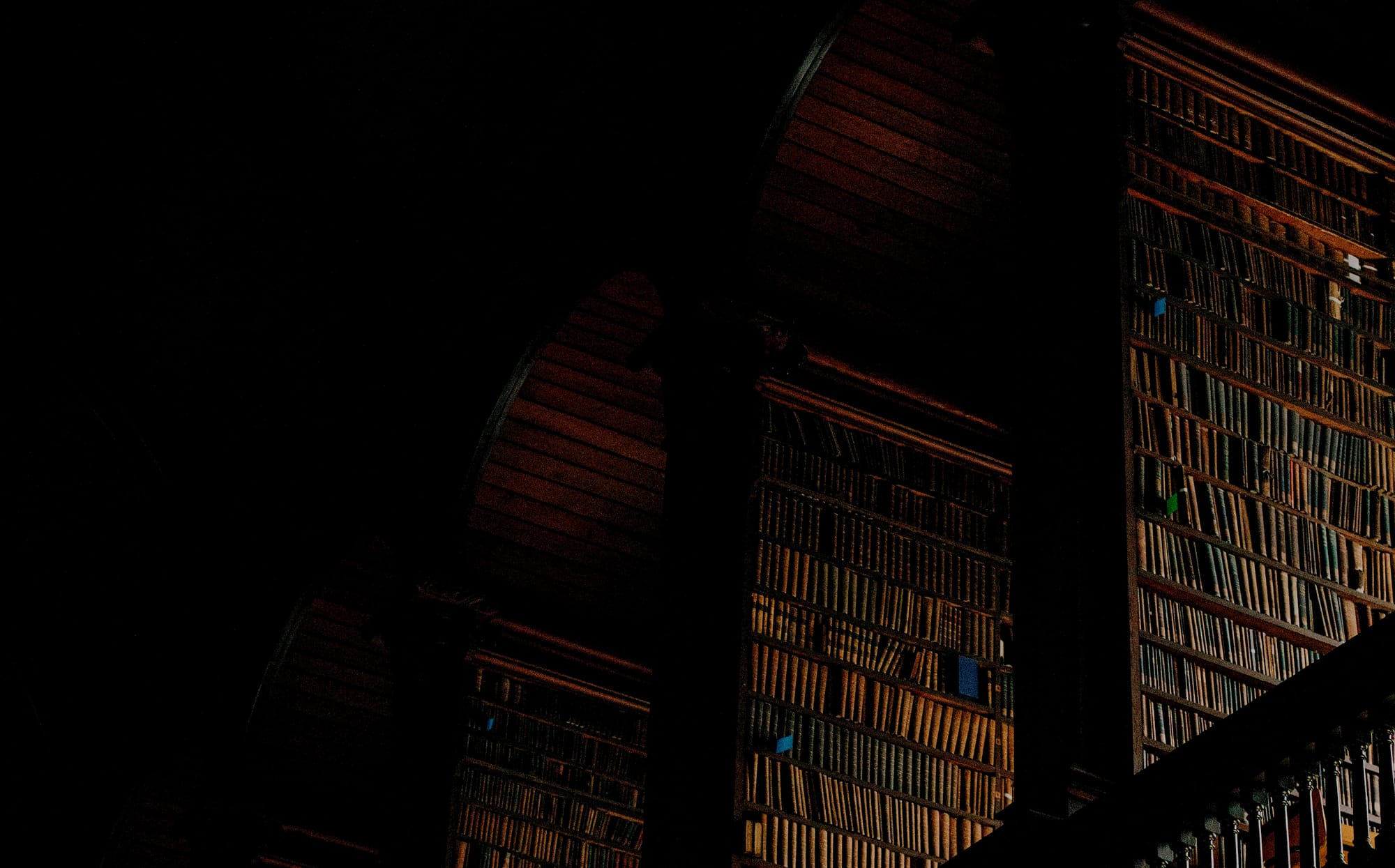Table of Contents
Authors, lend me your spreadsheets. Readers, lend me your receipts.
Someone in the Sapphic writers' Discord server that I'm on asked about where I buy ebooks, after I mentioned that I'd messaged Ally North begging for literally any option other than Amazon to get the Bloom Town books. I try to avoid Amazon whenever humanly possible—yes, no matter how eager I am to read the book.
I gave the question-asker my personal hierarchy of where I shop (I'll share that below), but it got me thinking: it'd be useful to put together a public list of ebook stores that aren't Amazon, along with what kind of cut the author actually gets when you buy from each one.
But first, there's one small technical quandry that matters a lot more than it sounds like: Is the royalty based on the list price, or on the net sale price?
Here's the difference:
- List price royalties mean the author gets paid the same amount no matter how much the store discounts the book. Whether You pay $12 or $1, it doesn't matter. The author still gets their fixed percentage of the original cover price.
- Net royalties mean the author only earns a percentage of whatever the store actually got from you. If there's a discount, the author gets less.
Formats (ebook, paperback, hardcover, etc.) all have their own list prices. For physical books, it's the number printed on the back. For ebooks, it's whatever the author or publisher set for that version.
When authors sell through their own site, Patreon, Ko-fi, and similar sites, royalties are usually based on net—but that's not a bad thing. They set the price themselves and probably only lose a few cents to processing fees. You can assume they're getting about almost all of of what you paid, which is chef's kiss.
In the table below, I've marked royalties as "of list" or "of net" for convenience. Just check where your money's going and aim for the route that fattens the author's wallet—not Jeff's.
| Name | Typica Author Royalty |
Typical Publisher Royalty |
DRM Free | Notes |
|---|---|---|---|---|
| Author Site | ~90–99 % of net | — | Yes (probably) | Basically everything but payment processing/hosting fees. |
| Patreon Shops | ~80–85% of net | — | Yes (probably) | Everything that's left after: - Platform Fee (5-12%) - Payment processing (~2.9% + $0.30 per transaction) - Currency conversion (~2.5% if applicable) - Payout (~%0.25 USD for ACD or ~1% up to $20 for Paypal) |
| Payhip | ~95–98% of net | — | Yes (probably) | Free plan takes 5%; higher plans lower that to 0%. |
| Grumroad | ~70–87% of net | — | Yes (probably) | Gumroad takes 10% of gross + payment fees (2.9% + $0.30 per transaction) |
| Ko-fi | ~95–100% of net | — | Yes (probably) | Ko-fi takes 0% on Gold plans, or 5% on free tier. Stripe fees (2.9% + 30¢) still apply. |
| Publisher | ~20–30 % of list | the rest | Varies, but small presses are usually DRM free | Royalty calculated on full list price; money stays inside the press. |
| itch.io | 90% of list to author, 10% to itch.io by default. Author can pick ratio, up to 100% for author. | — | Yes, site is DRM-free by policy. | Creator sets revenue split |
| Smashwords | ~85 % of net | — | Yes by default. Authors can choose DRM, but rarely do. | "net" is list minus payment fees, so the real take is about 75% to 82% of list Smashwords pays this to the holder of the account, so if that's the author (self publishing), then the author gets all of the payout. If it's a publisher, the publisher pays out as per contract |
| Weightless Books |
≈ 25 % of list | 50 % of net | Yes. 100% DRM-free and proud of it. High-trust, small-press SFF focus. | Store remits 50 % of each sale to the publisher; author earns from that. |
| Bookshop.org e‑book |
≈ 10 % of list | ≈ 40–50 % of net | No. Partnered with Hummingbird / MyMustReads. Files are locked to their apps. | Routes 100 % of each e-sale to the selected indie bookstore; author royalty unchanged. |
| Kobo | 70 % (price $2.99–$9.99) or 45% ($0–$2.98 or $10+) of net | — | No by default. Authors can opt-out of DRM, but usually don't. | Kobo pays this to the holder of the account, so if that's the author (self publishing), then the author gets all of the payout. If it's a publisher, the publisher pays out as per contract |
| Barnes & Noble | 70 % of list | — | No | B&N pays this to the holder of the account, so if that's the author (self publishing), then the author gets all of the payout. If it's a publisher, the publisher pays out as per contract |
| Amazon Kindle | 70 % ($2.99–$9.99) or 35 % ($0–$2.98, $10+) | — | Author choice, often not DRM free. | 70 % tier also pays a per‑MB delivery fee; KU exclusivity pressure. |
| Google Play | 70 % of list | 0 % | No. | No delivery fee, but Google may auto‑discount. |
| Library's purchase | ≈ 10 % of list | ≈ 50 % | No. There is DRM on all ebooks and audiobooks. Physical books are n/a. |
One‑off royalty when library buys an institutional copy. Typical checkouts/book tend to be 30-100+ for hardcovers, 10-30 for trade paperbacks, 5-15 for mass market paperbacks. Library ebooks and audiobooks are too complicated for this table. |
| New hardcover | Contract dependent. Typical rate is often 10% of list, 15% after 10,000 copies sold. |
Wholesale price minus publisher expenses | — | Publisher typically gets the full wholesale price, and their profit is what's left after paying the author, printing and distribution costs, advertising, taxes, payroll, and all other expenses. |
| New Paperback | Contract dependent. Typical rate is often 6% of list, 10% after 10,000 copies sold. Can vary widely from "typical". |
Wholesale price minus publisher expense | — | Publisher typically gets the full wholesale price, and their profit is what's left after paying the author, printing and distribution costs, advertising, taxes, payroll, and all other expenses. |
| New Audiobook | Contract dependent. Often 25-40% of *net, but harder to estimate. Can vary widely from "typical". |
¯\(ツ)/¯ | Platform dependent | Subrights often sold to third-party producers |
| New physical Amazon pub |
60% of list minus printing costs, except "low price" books (often <$9.99 USD) which are 50% of list minus printing costs. | The rest | — | Adds shipping and cardboard, supports Amazon |
| Used physical local shop |
0 % | 0 % | — | Supports the bookstore, but no new money reaches author/publisher. |
| Used physical bought online |
0 % | 0 % | — | Same, plus extra packaging/shipping footprint. |
If any of my data above is wrong, or if there are other sites I should add but didn't, please tell me!
So, where do I buy my books?
In short: I try to prioritise whoever did the work. That means authors first, then publishers (especially small or worker-owned ones), and then local businesses—with two big caveats: I try not to buy new physical things unless I have to, and I avoid Amazon, Google, and anything they've swallowed whole.
My own hierarchy looks somewhat like this:
- direct from the author (their site, patreon, payhip, gumroad, ko-fi)
- itch.io
- smashwords
- direct from the publisher, at least for small (and especially worker-owned) presses
- weightless books
- bookshop.org
- kobo
- B&N
- library
- used physical books from local (indie) bookstores
- used physical bought online
- new physical from local (indie) bookstores
- new physical from local big bookstores
- new physical online
Never:
- amazon
I'll admit—I'd probably rank the library higher if it better matched my reading life. My mom's a librarian; I grew up wandering the stacks. But I live in Prague now, and my Czech is still… aspirational. The English section here exists, and I love that it does—but it mostly covers international bestsellers and more mainstream titles, which doesn't always align with my very Sapphic, very niche little book-gremlin heart.





Comments